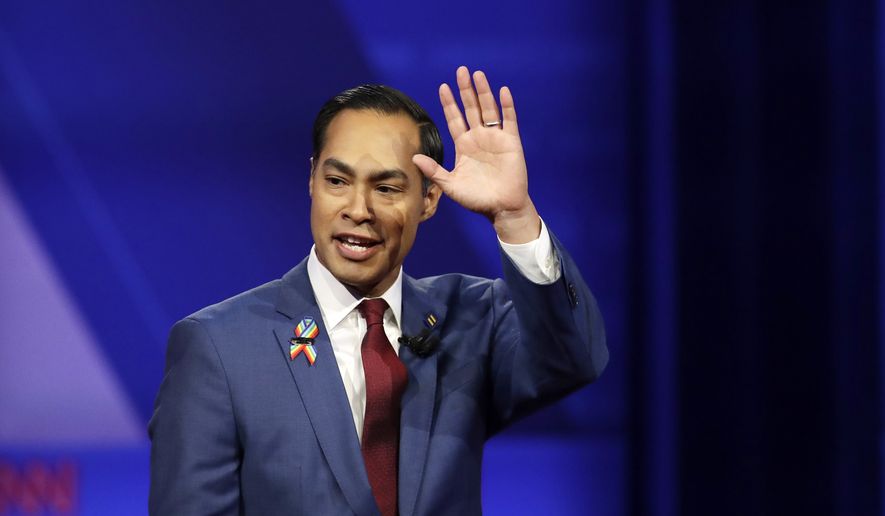Former housing secretary Julián Castro, who dropped his presidential bid on Thursday, said speaking out against the Democratic presidential calendar was almost considered more “radical” within the party than lobbying for “Medicare for All.”
“Putting the race or ethnicity of candidates aside for a second, if I told people out there — if you didn’t know anything about the Iowa caucus and I said to you, OK, look, this is how we’re going to start this process,” Mr. Castro told MSNBC’s Rachel Maddow. “You can only vote on one day at 7:00 in the evening, there’s no early voting, there’s no secret ballot.”
“So you can’t … have a secret ballot on how you’re voting. You have to declare in front of everybody how you’re voting. People would think that Republicans designed the Iowa caucus,” he said.
Before he left the race, Mr. Castro had argued that the Democratic Party should rethink the presidential primary calendar since Iowa and New Hampshire are overwhelmingly white.
“So I very much see this as in keeping with our push in the Democratic Party for greater ballot access and voting rights — that we change the way that we do our presidential nominating process,” he said.
“It is very ironic that we keep telling black women, you’re our saviors, you helped us win Alabama, you helped the governor win reelection in Louisiana, you’re our key to 2020, and we see what happened in 2016 that Trump won because African-American turnout fell from 66% four years earlier to 59.5%, including in places like Philadelphia, in Detroit, in Milwaukee, which are important in those three states, those states that we always obsess about,” he said.
“And at the same time, you start your nominating process [in] two states that hardly have any black women, any black people at all. It doesn’t make any sense,” he said. “And it was so weird because voicing that opinion was almost considered more radical in the Democratic Party, saying maybe Iowa and New Hampshire shouldn’t go first than to say we should have single-payer health care or something. It doesn’t make any sense.”
Mr. Castro also said people with disabilities have complained about a lack of accessibility and that certain shift workers just can’t take the day off to participate.
“I mean, they have said, how about early voting or some way to vote by mail? That doesn’t exist,” he said.
Democrats last year rejected the idea of allowing “virtual” caucuses because of security concerns, but people will still be able to participate at additional “satellite” locations both in Iowa and around the world.
• David Sherfinski can be reached at dsherfinski@washingtontimes.com.




Please read our comment policy before commenting.